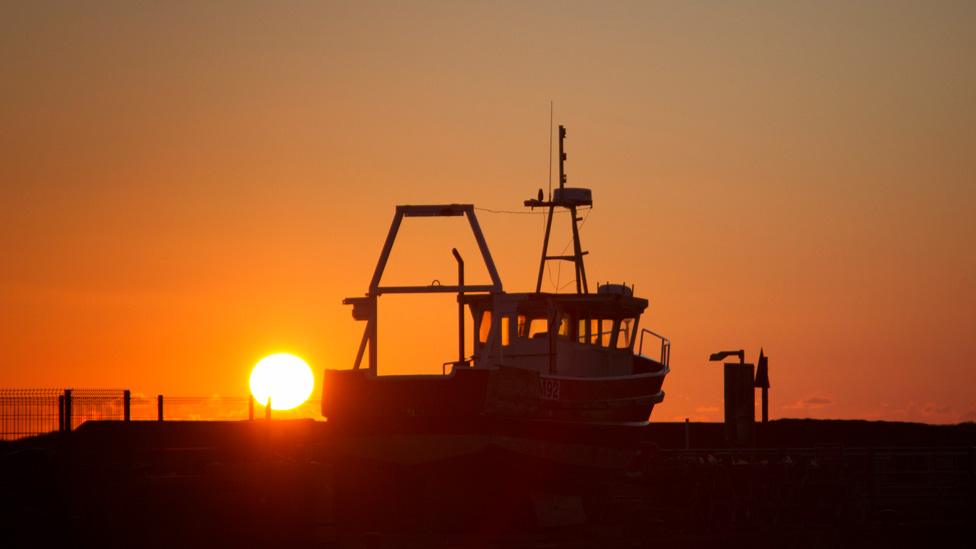Risk freeports could drive trade away from Wales, Welsh ministers claim
- Published
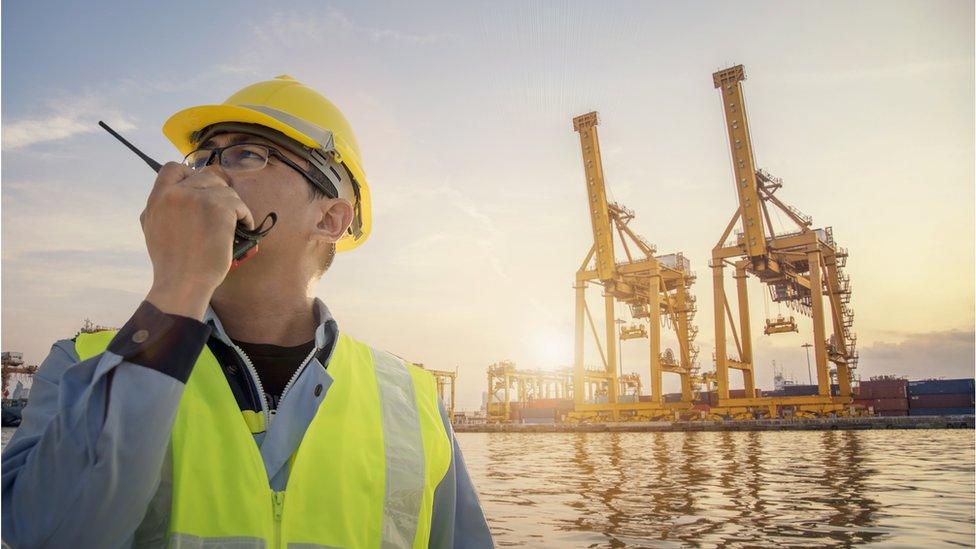
Freeports are usually located around shipping ports, or airports.
The first minister has expressed worries that freeports in England could displace economic activity from Wales.
The UK Treasury announced the location for eight freeports in Wednesday's Budget.
On Thursday, Mark Drakeford told MPs his concerns over introducing them in Wales were "resolvable" but that the "ball" was in UK ministers' court.
Chief Secretary to the Treasury Stephen Barclay said freeports were "attractive" to many firms in Wales".
What is a freeport?
Freeports are usually located around shipping ports, or airports. Goods that arrive into freeports from abroad are not subject to the tax charges, called tariffs, that are normally paid.
These taxes are only paid if the goods leave the freeport and are moved elsewhere in the UK.
Otherwise, they are sent overseas without the charges being paid.
The UK had seven freeports between 1984 and 2012, including one in Cardiff.
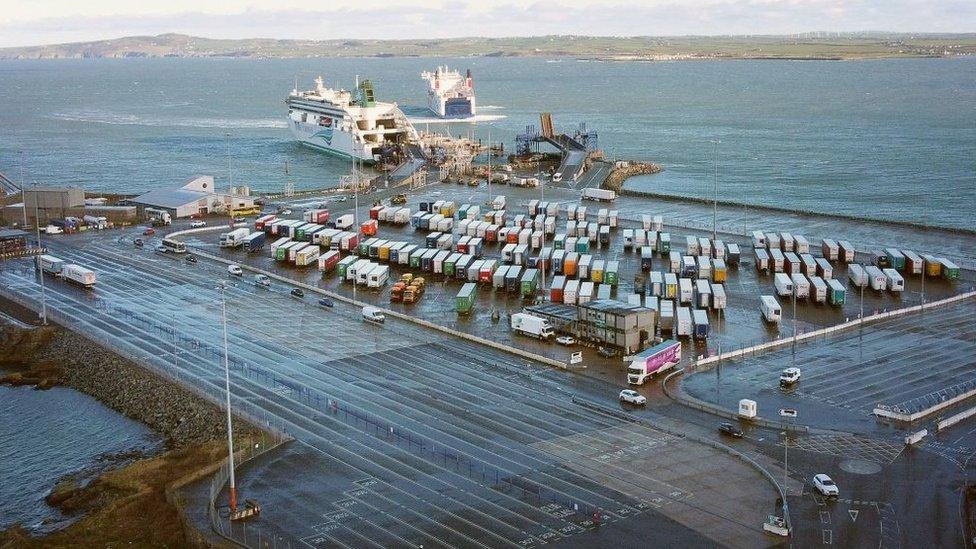
Holyhead has expressed an interest in gaining freeport status
At the Budget the Treasury announced eight for England at East Midlands Airport, Felixstowe and Harwich, Humber region, Liverpool City Region, Plymouth, Solent, Thames and Teesside.
Chancellor Rishi Sunak said they would have "different rules to make it easier and cheaper to do business".
More than 30 areas in England reportedly bid to become a freeport, but in Wales the bidding process has not launched yet.
The UK government has pledged to introduce one in Wales and Scotland too but some of the tax exemptions freeports use, including stamp duty, or land transaction tax in Wales, are devolved.
Speaking at a St David's Day debate in Parliament last week, Welsh Secretary Simon Hart said that the UK government "will deliver a freeport in Wales, hopefully with Welsh government support if we can get it".
Why are freeports controversial?
Supporters say freeports can help increase manufacturing and encourage jobs and investment in areas that would otherwise struggle to attract them.
But opponents say they do not boost employment overall, and moving economic activity from one place to another comes at a cost to the taxpayer.
Critics also warn they can sometimes attract tax avoidance or other illegal schemes.
What are the sticking points for one in Wales?
A number of areas in Wales have expressed interest in gaining freeport status, such as Milford Haven in Pembrokeshire and Holyhead, Anglesey.
On Thursday, Ynys Mon Conservative MP Virginia Crosbie asked Mr Drakeford whether the bidding process for Welsh freeports had been "held back" due to Welsh government "concerns about economic displacements and potential risks associated with freeports".
The first minister said "anybody sensible" would be "worried about displacement in freeports".
Ms Crosbie said that the British Ports Association said Welsh ports, including Holyhead could "suffer displacement of economic activity" to English ports such as Liverpool if "the offer of at least one freeport in Wales is not accepted by the Welsh government".
Mr Drakeford said Welsh ministers "will not be keen to sign up to a freeport proposal that leads, for example, to a reduction in environmental standards. The UK government has agreed conditionality with the Scottish government in that way".
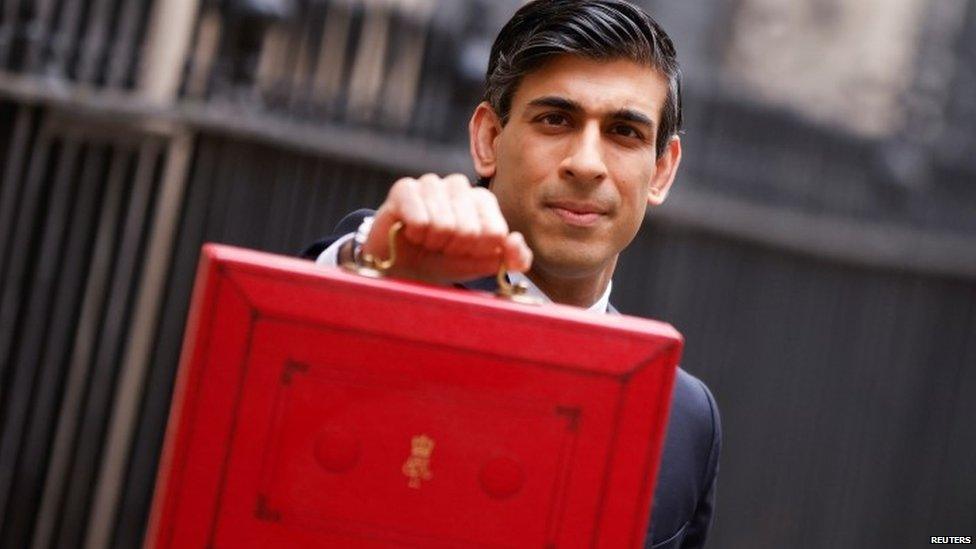
Rishi Sunak said freeports would have "different rules to make it easier and cheaper to do business"
The first minister added: "We would look for joint decision making given that devolved and non-devolved responsibilities are at stake in freeports, and again the UK government has agreed joint decision making with the Scottish government.
"Then we'd look for the same level of funding for a freeport in Wales as is being made available to all freeports in England - that's £25m available to a freeport in England, we'd expect to see the same level of funding for a freeport in Wales.
"If there is progress on those three things that conversation can certainly continue."
But he said he believed those issues were "resolvable" but that the "ball at the moment is in the court of the UK government."
Mr Drakeford said Wales' finance minister and economy minister had raised these concerns in a letter to Chief Secretary to the Treasury Stephen Barclay and they are waiting for a response.
"The issues we raised in our letter to the chief secretary - conditionality, joint decision making and fair funding - if we can bring those things off, and the UK government believes there is a case for freeports in Wales, then that's an agenda we can work on together," he added.
Mr Barclay has said £740m allocated to Wales in the Budget as a result of extra spending on devolved areas in England "enables the Welsh government to allocate funding to freeports in exactly the same way it would through the Barnett scheme".
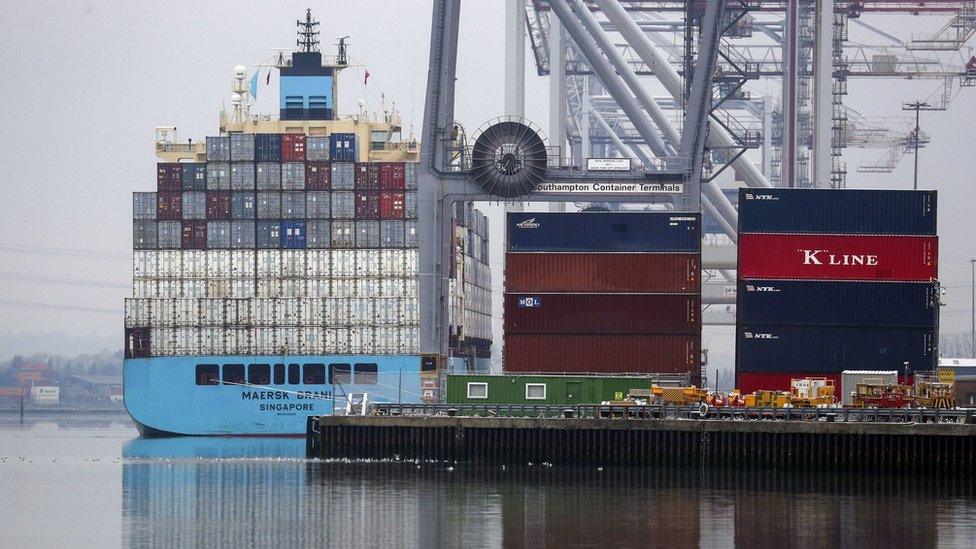
Southampton teamed up with Portsmouth as part of a south coast freeport bid
Mr Barclay said: "Many businesses in Wales tell me they want to see a freeport just as they do in Scotland and Northern Ireland."
"We're very keen to see businesses in Wales benefit from a freeport, but I'm keen to do that constructively with the Welsh government. I've had a number of discussions with the Welsh finance minister in respect of that," he said.
"The main benefit of a freeport to businesses in Wales is through the tax benefits - particularly around the ability to buy land in terms of the stamp duty exemptions, the investment in buildings, the investment in plant, the ability to work with regulators on innovative products and getting them to market quicker, the customs facilitations in terms of the ability to defer payments, or if those products then go out to export to not have to make payments at all.
"So there's a wide range of benefits, which is partly why freeports are so attractive to many businesses in Wales. The seed funding is only a small element of that, and Wales gets more per head through the Barnett consequentials as it is, and that's unallocated.
"The £740m allocated to Wales additionally in the Budget through the Barnett formula, as well as the wider package of support through Barnett enables the Welsh government to allocate funding to free ports in exactly the same way it would through the Barnett scheme."
- Published22 March 2023

- Published2 August 2019
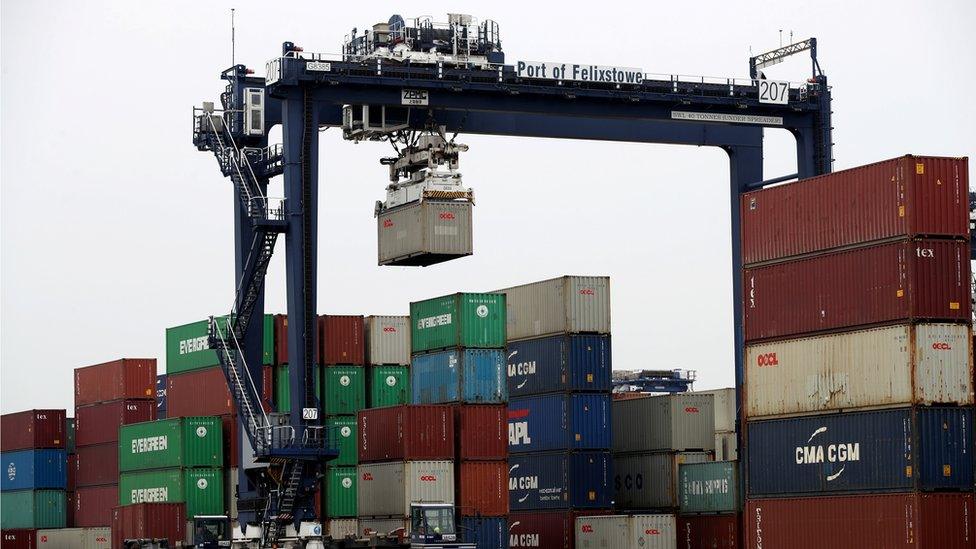
- Published23 February 2018
